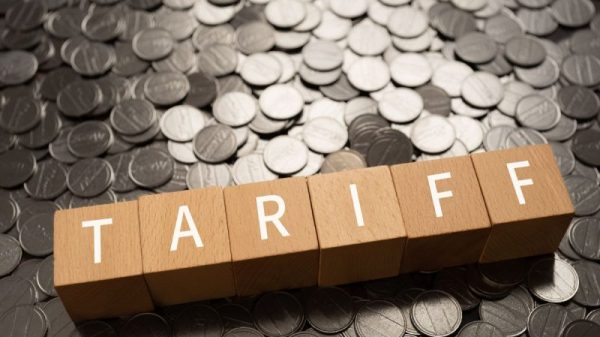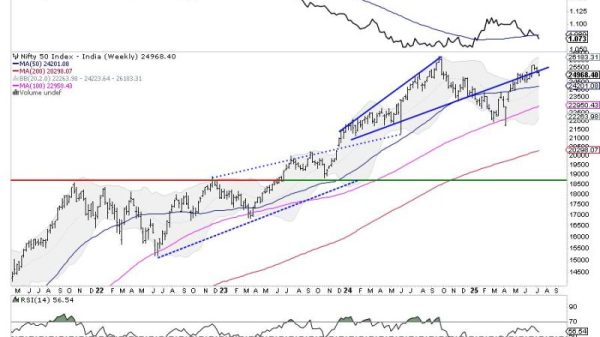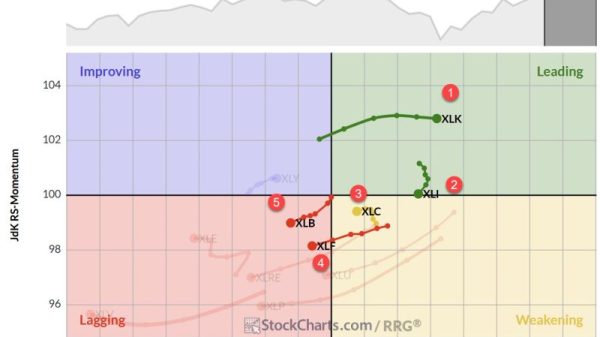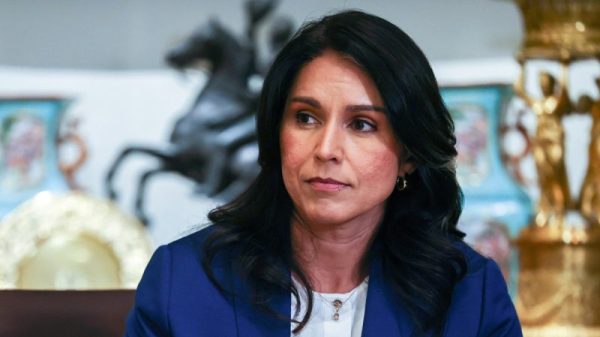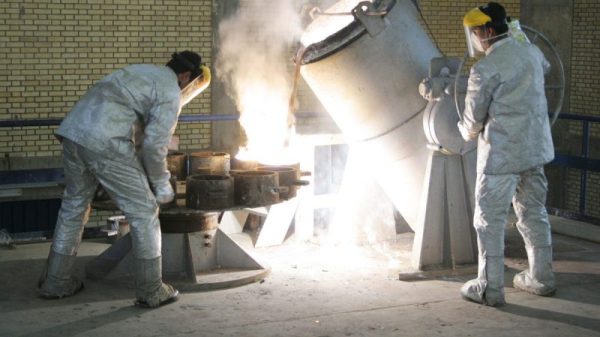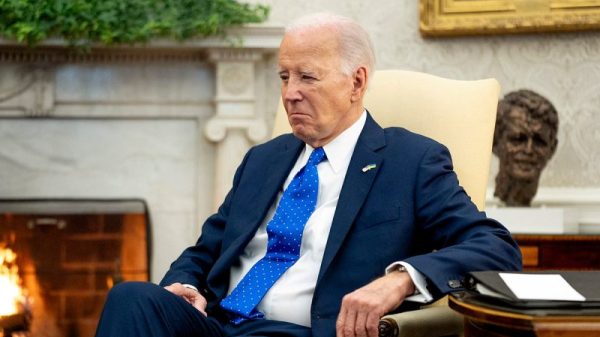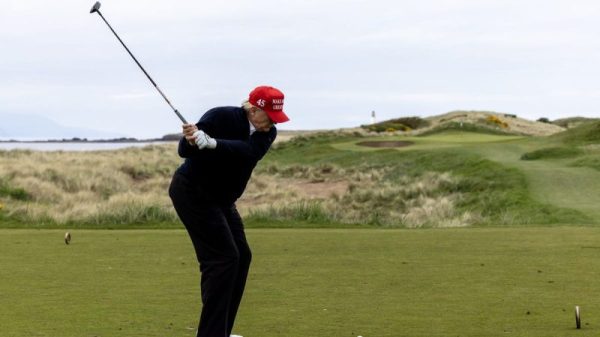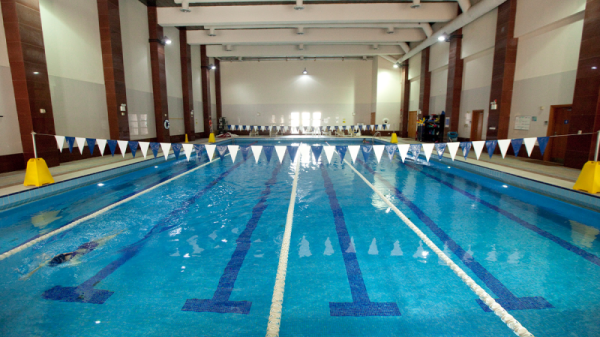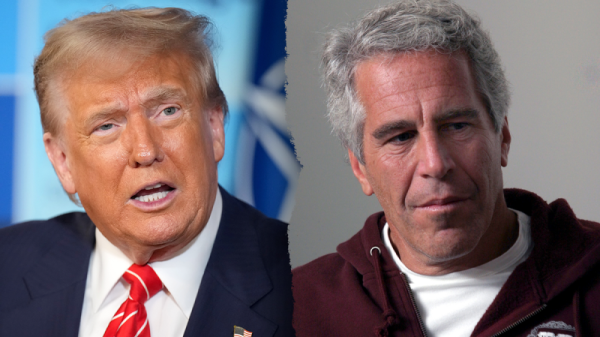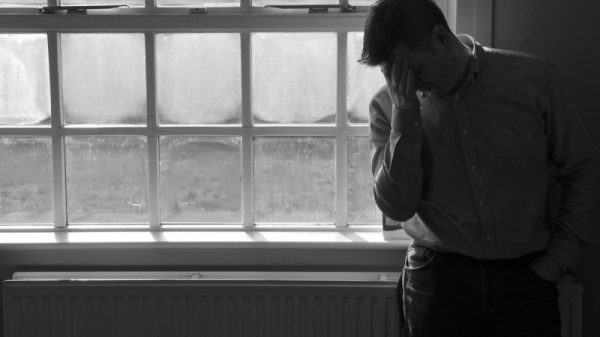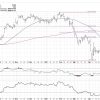The large-scale surprise attack by Gaza militants on Israel on Saturday has left hundreds of Israelis dead, prompting a lethal volley of retaliatory Israeli airstrikes and a formal declaration of war on Sunday.
“Citizens of Israel, we are at war – not in an operation, not in rounds – at war,” Israeli Prime Minister Benjamin Netanyahu said in a video message shortly after the militant group Hamas, which controls the coastal enclave of Gaza, fired a barrage of rockets and sent gunmen into Israel in a multi-pronged and unprecedented attack in the long-running conflict.
Over a thousand people have died so far, with more than 700 Israelis killed under the Hamas assault and more than 400 Palestinians dead as Israel pounds Gaza with airstrikes.
Still unknown are the fates of at least 100 hostages, including Israeli soldiers, that Hamas says it captured.
Here’s what we know so far.
What happened?
Around 6:30 a.m. local time on Saturday, when many Israelis were likely to have been asleep, sirens were heard as far as the Tel Aviv area as rockets flew over Israel.
Militants from Gaza then entered Israel by land, sea and air, with some using paragliders, the IDF said.
The IDF said around 2,200 rockets were fired at Israel. Hamas put the figure at 5,000. To put that in context, some 4,000 rockets were fired from Gaza into Israel during the 50-day war between the two sides in 2014.
Hamas military commander Muhammad Al-Deif called the operation “Al-Aqsa Storm” and said that the assault on Israel was a response to attacks on women, the desecration of the al-Aqsa mosque in Jerusalem and the ongoing siege of Gaza.
Hamas said in a statement the same day that its fighters were still present in southern Israeli cities, and that the group was supporting them with rocket fire in the cities of Ofakim, Sderot, Yad Mordechai, Kfar Aza, Be’eri, Yated, and Kissufim.
How has Israel responded?
In response to the attack, Israel launched “Operation Swords of Iron,” striking a number of targets in the Gaza strip. Netanyahu said Israel’s response to the Hamas incursion will “exact a huge price” from the group.
The IDF urged civilians in Gaza to leave their residential areas immediately for their safety as Israeli military operations continued to target Hamas.
Inside Gaza, the roar of Israeli warplanes could be heard followed by loud explosions and rising plumes of black smoke.
At least 313 people were killed over 24 hours, including at least 20 children, the Palestinian Ministry of Health in Gaza said Sunday. Another 1,990 were injured, it added.
On Sunday, the IDF said it struck 426 targets in Gaza, including 10 towers it said were used by Hamas.
In the north, Lebanon’s Iran-backed Hezbollah group claimed responsibility for targeting three Israeli sites in an area known as Shebaa Farms using missiles and artillery. The area is considered by Lebanon as Israeli-occupied. Israel responded by firing artillery.
And in the Israeli-occupied West Bank, seven Palestinians were killed by Israeli soldiers on Saturday when clashes broke out after the Israeli army blocked West Bank cities, according to the Palestinian Ministry of Health.
How did the two sides get here?
Tensions between Israel and the Palestinians have existed since before the nation’s founding in 1948. Thousands of people on both sides have been killed and many more injured in the long-simmering conflict between the two sides over decades.
Violence has been particularly heightened this year. The number of Palestinians – militants and civilians – killed in the occupied West Bank by Israeli forces is at its highest in nearly two decades. The same is true of Israelis and foreigners – most of them civilians – killed in Palestinian attacks.
Israel and Hamas have been involved in armed conflict dating back as early as the 1987 First Palestinian Intifada, or uprising, against Israel’s occupation of the Gaza Strip and the West Bank.
Israel captured Gaza from Egypt in a 1967 war, then withdrew in 2005. The territory, home to some 2 million Palestinians, fell under Hamas’ control in 2007 after a brief civil war with Fatah, a rival Palestinian faction that is the backbone of the Palestinian Authority.
After Hamas seized control of Gaza, Israel and Egypt imposed a strict siege on the territory, which is ongoing. Israel also maintains an air and naval blockade on Gaza.
Before Saturday’s operation, the last war between Hamas and Israel was in 2021, which lasted for 11 days and killed at least 250 people in Gaza and 13 in Israel.
Saturday’s assault occurred on the 50th anniversary of the 1973 war, when Israel’s Arab neighbors launched a surprise attack on Israel on Yom Kippur, the holiest day in the Jewish calendar, on October 6, 1973.
What is Hamas?
Hamas is an Islamist organization with a military wing that came into being in 1987, emerging out of the Muslim Brotherhood, a Sunni Islamist group that was founded in the late 1920s in Egypt.
The word “Hamas” is itself an acronym for “Harakat Al-Muqawama Al-Islamia” – Arabic for Islamic Resistance Movement. the group, like most Palestinian factions and political parties, insists that Israel is an occupying power and that it is trying to liberate the Palestinian territories. It considers Israel an illegitimate state.
Its refusal to recognize Israel is one reason why it has rejected peace talks in the past. In 1993, it opposed the Oslo Accords, a peace pact between Israel and the Palestine Liberation Organization (PLO).
The group presents itself as an alternative to the Palestinian Authority (PA), which has recognized Israel and has engaged in multiple failed peace initiatives with it. The PA is today led by Mahmoud Abbas and is based in the Israeli-occupied West Bank.
Hamas has over the years claimed many attacks on Israel and has been designated as a terrorist organization by the United States, the European Union and Israel. Israel accuses its archenemy Iran of backing Hamas.
What is al-Aqsa?
The al-Aqsa compound is one of the most revered places in Islam and Judaism. The sacred grounds, known to Muslims as Al Haram Al Sharif (Noble Sanctuary) and to Jews as Temple Mount have been a flashpoint of tensions between Israel and the Palestinians for decades.
Hamas says it launched Saturday’s “Al-Aqsa Storm” attack in part to defend the holy site.
Only Muslims are allowed to pray in the compound under a status quo arrangement originally reached more than a century ago. Non-Muslim visitors are allowed visits at certain times and only to certain areas of the complex.
But many in the Muslims world fear that the right to be the sole worshipers there has been eroded and that the sites themselves are being threatened by a growing far-right Jewish movement and Israel’s far-right government.
Clashes have frequently broken out at the site between Palestinian worshipers and Israeli forces. Police raided the compound several times over the last year.
The complex lies in East Jerusalem, which the Palestinians want as the capital of their future state and which most of the international community considers to be occupied territory. Israel captured it from Jordan in its six-day war in 1967 and considers both East and West Jerusalem as its united, “eternal capital.”
What are key regional players saying?
Western states condemned the Hamas attack and pledged support for Israel while Arab states, including those that have recognized Israel, called for calm.
United States President Joe Biden spoke to Israeli Prime Minister Benjamin Netanyahu on Saturday and said that Washington “unequivocally condemns this appalling assault against Israel by Hamas terrorists from Gaza.”
“I made clear to Prime Minister Netanyahu that we stand ready to offer all appropriate means of support to the government and people of Israel,” he said.
Saudi Arabia, which is holding talks with the US to potentially normalize relations with Israel, said it is following closely the “unprecedented” situation and called on “both sides to immediately stop the escalation,” according to a statement by the Saudi foreign ministry on X.
Israel’s adversaries welcomed the attack. Major General Rahim Safavi, an adviser to Iran’s Supreme Leader Ayatollah Ali Khamenei, said: “We congratulate the Palestinian fighters and will stand by their side until the liberation of Palestine and holy Jerusalem,” state-run ISNA said.
Hezbollah praised the assaults and said it is in contact with Palestinian militant groups “at home and abroad,” its Al Manar channel said.
What happens next?
The IDF is now focusing on taking control of the Gaza Strip.
“The significant thing that preoccupies us right now is the stabilization of control in the Gaza Strip,” Hecht told a briefing Sunday.
“We have targets for the next 12 hours: to end the Gaza enclave. To control the entire enclave and kill all the terrorists in our territory,” he said, adding that the IDF will try to evict certain communities in areas of Gaza.
Israel’s Minister of Defense Yoav Gallant has expanded the country’s “special security situation” to the entirety of Israel’s territory.
This enables the IDF to provide security instructions to civilians and to close public sites as needed for security, the minister’s office said. A “special security situation” area, within an 80-kilometer (48-mile) radius of the Gaza Strip, had been established earlier on Saturday.
Hecht said the IDF plans to put several potential next steps before the Israeli cabinet, which is meeting Sunday. The government is likely to take a decision on Sunday or Monday, he said.
Senior Hamas member Saleh al-Arouri told Al Jazeera Arabic Saturday that Hamas is ready “for all options, including a war and an escalation on all levels.”
“We are ready for the worst-case scenario, including a ground invasion, which will be the best for us to decide the ending of this battle,” al-Arouri said.


